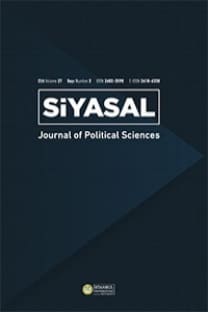A New Challenger in European Politics: Rethinking Poland’s International Relations Agenda
Poland has become a prominent actor in European and transatlantic politics, security, and international relations, especially in the 21st century. The country’s controversial position after the end of the Cold War has long been on the agenda of international actors and states. It has been the biggest Central and Eastern European country to try and to succeed in being a strong, assertive ally in Euro-Atlantic structures as a westernized country. However, it is not difficult to say that this more than 30-year process includes different priorities in foreign policy. From this point of view, the Poland of the 1990s and the Poland of the “post EU-accession period” differ from each other in terms of foreign policy discourse, agenda, and implications. In this paper, I will try to analyze the current focuses of Poland’s foreign policy agenda in general, considering its position in the European Union and transatlantic security structures. In addition, I will discuss how the international and domestic determinants of Polish foreign policy have evolved with a holistic approach. Emphasizing the developments and dynamics of recent years, this paper also tries to answer the question of why there is a need to prepare a special journal issue on Polish foreign policy in the 21st century. As Poland now has a different agenda in terms of its international relations (compared to the pre-EU accession process), it is worth discussing and analyzing the breaking points, new tendencies, and current dynamics of Polish foreign policy with numerous distinguished articles in this special issue.
Keywords:
Poland, Polish Foreign Policy, Polish Security Policy Euroscepticism,
___
- Özgün Erler Bayır, Atlantikçilik-Avrupacılık İkileminde Polonya Dış Politikası, İstanbul, Derin Yayınları, 2013
- Yayın Aralığı: Yılda 2 Sayı
- Başlangıç: 1983
- Yayıncı: İstanbul Üniversitesi
